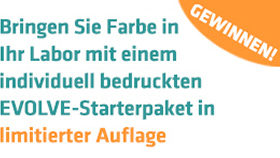 In unserem Post “Darum trauen wir deutschen Veröffentlichungen nicht” vom 16. März zitierten wir den Direktor eines Edel-Instituts an der US-Westküste folgendermaßen zum Thema Zuverlässigkeit und Redlichkeit deutscher Postdocs und Veröffentlichungen:
In unserem Post “Darum trauen wir deutschen Veröffentlichungen nicht” vom 16. März zitierten wir den Direktor eines Edel-Instituts an der US-Westküste folgendermaßen zum Thema Zuverlässigkeit und Redlichkeit deutscher Postdocs und Veröffentlichungen:
In general, since you are journalist: I admire your investigative efforts. But you have to know that it was widely known that German postdocs did everything they could to get as many papers as possible published because of the pathological promotion system in Germany that puts so much insane pressure on scientists to have large numbers of papers. This led sadly to sacrificing the truth. That is why we do not trust German papers from authors with suspiciously large numbers of papers. This is an open secret.
Jetzt ergänzt er dazu:
I am fine with the quote on your blog. But for fairness, my critique is directed against the system in Germany and the undue pressure on young researchers and not the German researchers as persons. Proclivity for cheating is higher among academic M.D., less so among Ph.D, since the former have less strong a lifelong commitment to scientific truth than PhD. And yet are expected to do research only to climb up the academic ladder.
And I would like to emphasize: German postdocs are in general among the best educated, and many exhibit an idealism towards science with a natural, curiosity driven meticulous pursuit of truth that reflects centuries of tradition in classical thinking that you don’t see among postdocs from other newly developed countries. Sorry if I sound a bit racist but there are true albeit subtle differences among nations that one needs to articulate.
Mal abgesehen von der ursprünglichen Redlichkeits-Diskussion: An den erwähnten nationalen Unterschieden zwischen den Nationen ist sicher etwas dran. Wir durften das selbst mal hautnah in Dubai feststellen, wo sie mit ihrem vielen Geld natürlich auch gerne Top-Forschung etablieren wollen. Es war allzu deutlich, dass ein Volk, dessen Art zu Denken vor allem durch eine jahrhundertelange Tradition als Händler geprägt ist, ganz andere und am Ende auch größere Schwierigkeiten damit hat als beispielsweise ein Volk mit einer ähnlich langen Kulturtradition der „Dichter und Denker“.





